Breathing through the mouth while sleeping is bad for everyone, particularly children in their formative years. Unfortunately, it’s not a habit in most cases, but rather a necessity.
Contents
- Why Do We Breathe Through Our Mouth While Sleeping?
- How to Know If You Are Breathing Through Your Mouth?
- Why and How is Mouth Breathing Bad for You?
- Facial Deformation
- Oral Health Degradation
- Deteriorating Asthmatic and Allergic Symptoms
- Speech Impairment
- Deteriorating Sleep Apnea
- How to Stop Breathing Through Your Mouth While Sleeping?
Why Do We Breathe Through Our Mouth While Sleeping?
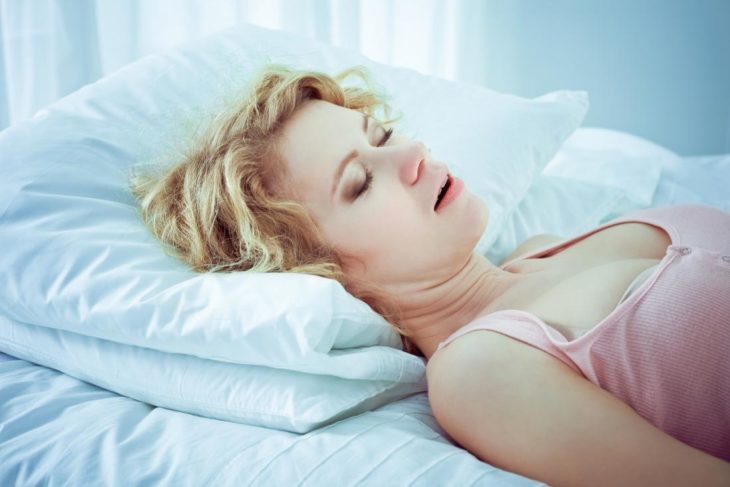
Source: Medical News Today
A variety of causes that range from psychological stress to nasal infections can lead to mouth breathing. The most common of those causes can be summarized as follows:
- Allergies, cold, flu, sinusitis, asthma and nasal polyps
- Cleft lip and cleft palate in children, or even in adults who were not treated
- Tongue tie, deviated septum, and other closely related birth defects
- Obstructive sleep apnea
How to Know If You Are Breathing Through Your Mouth?

Source: Palmetto Smiles of Beaufort
At first thought, it might seem like an impossible task, unless someone keeps a close tab on you during the night when you sleep. While this is, in fact, the ideal way to notice mouth breathing in infants and small children, adults do not necessarily require another person’s help to know if they are breathing through their mouth at night. Look at the following symptoms and you should be able to identify with most of them immediately if you are indeed sleeping with your mouth open.
- Oral dehydration: Waking up with a very dry mouth, tongue and throat
- Bad breath in the morning
- Particularly hoarse voice in the morning
- Frequent throat infections/sore throat
Why and How is Mouth Breathing Bad for You?
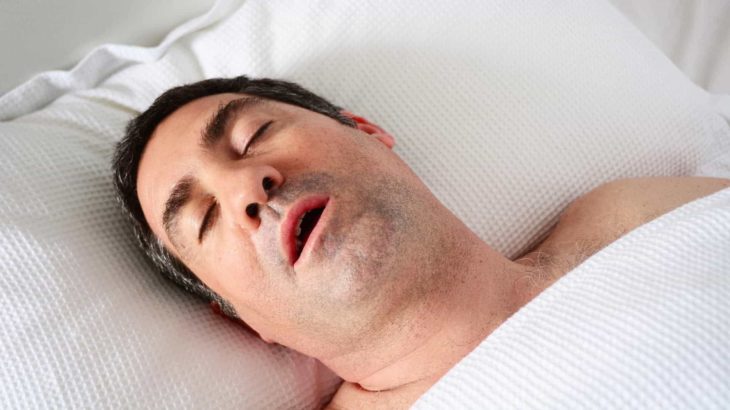
Source: SomniShop
When the air from the environment around you passes through the nose, it is conditioned and filtered before entry to the inner respiratory system is allowed. This significantly reduces the chance of infectious microbes, dust and particles getting through in large quantities. The mouth on the other hand, has no such filtration system and therefore, the air hits the inner, more sensitive respiratory system directly, without temperature conditioning or filtering of any kind. This could lead to a whole range of health complications.
If a dry mouth, bad breath and frequent throat infections are not reason enough for some reason, then consider the fact that when continued for a long time, breathing via the mouth at night can lead to the following more serious consequences as well:
Facial Deformation

Source: The Bump
Infants and small children are particularly susceptible to facial deformations such as an uneven face, malformed jaw, misaligned upper and lower jaw, etc. when they breathe from their mouth. It happens because their bones are still very soft and will change according to external and internal factors such as breathing habits. Parents must, therefore, be observant and careful to note whether a child is breathing through the mouth.
Oral Health Degradation
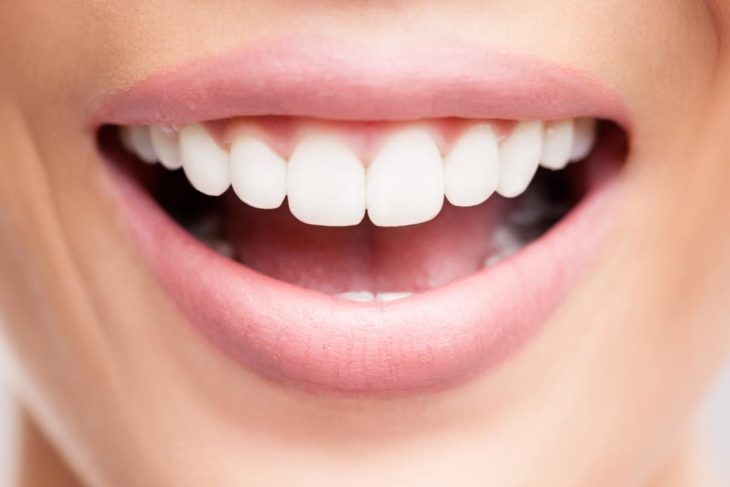
Source: Medical News Today
Oral health degenerates when breathing through the mouth and it affects both children and adults. Some of the complications are tooth decay, gum disease and even the development of an underbite or overbite.
Deteriorating Asthmatic and Allergic Symptoms
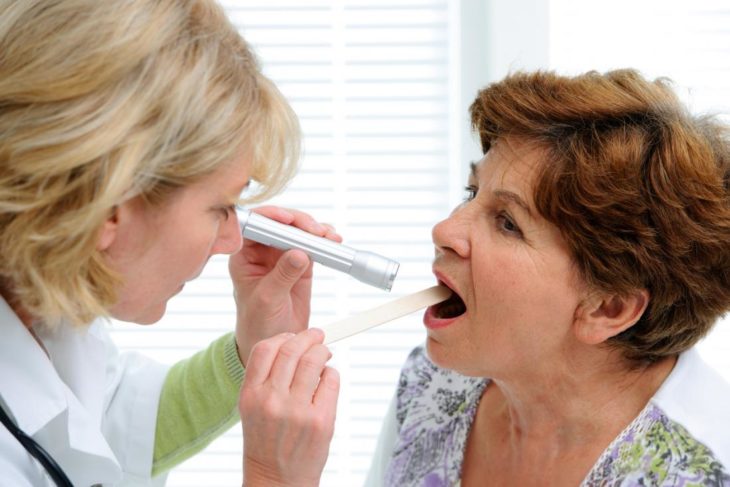
Source: Medical News Today
As we mentioned earlier, asthma can trigger mouth breathing in sleeping individuals, but mouth breathing itself can also further worsen asthma by causing strain, throat infections, allergic reactions (no filtration), irritation, colds, etc. creating a vicious cycle.
Speech Impairment

Source: Cleveland Clinic Health Essentials
When you have misalignment in your mouth, it becomes particularly difficult for the tongue to produce proper, clear speech, leading to mumbled speech and lisps as a result.
Deteriorating Sleep Apnea
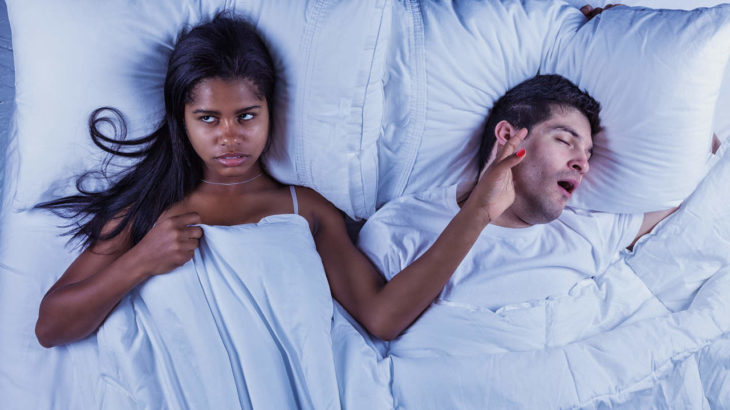
Source: Health Magazine
Sleep apnea is worsened by mouth breathing, but it is at the same time, a common problem found in people with sleep apnea. CPAP masks require more air pressure in individuals who suffer from sleep apnea and breathe through the mouth at the same time.
How to Stop Breathing Through Your Mouth While Sleeping?
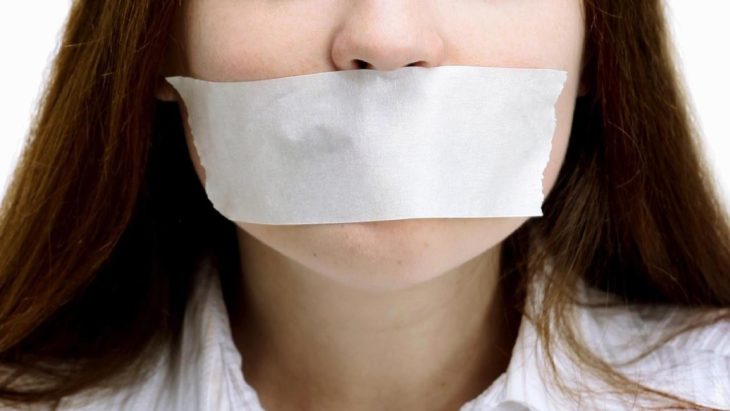
Source: Alex Fergus
The solution to any mouth breathing habit will depend primarily on the cause behind it. For example, if your nose is blocked due to a cold or an infection, you will require nasal decongestants, antihistamines, and maybe even antibiotics to treat the condition.
Surgical procedures will be necessary if polyps or a deviated septum are the reason behind it. In most situations though, these strips from SomniFix can help to either stop mouth breathing, or aid nasal breathing, supplementing primary treatment of the main cause.
On top of being completely CPAP mask compliant, these hypoallergenic, comfortable and gluten-free mouth strips also allow the sleeping individual to breathe via their mouth if they really need to. In general, though, their purpose is to instill a general tendency in mouth breathers to become nose breathers, even when they are sleeping.
